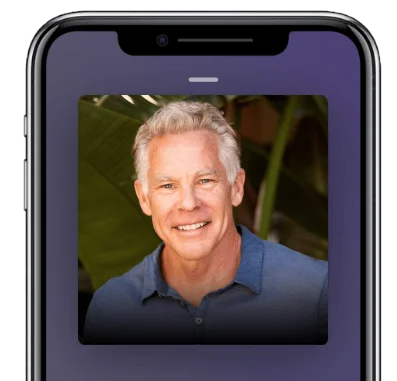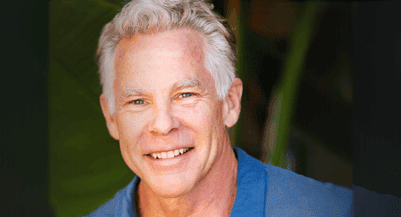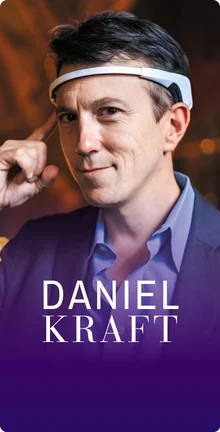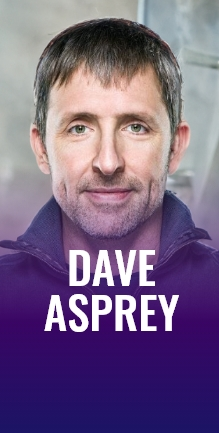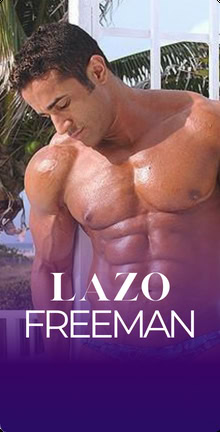In this Episode
- [02:01]Mark talks about the physical effects of endurance training. Some amount is positive, he tells us, but beyond a certain point, too much endurance training can have a negative physical effect.
- [05:16]After experiencing health issues and seeing them appear in his friends, Mark started to look at how endurance training impacts the body.
- [06:53]What is the solution to the question of finding a balance of training enough but not too much?
- [11:37]Mark explains his views on caloric restriction. He doesn’t believe that calories need to be restricted as much as glucose.
- [18:06]Our host, Stephan, asks Mark if he’s off sugar completely. Fortunately for listeners with a sweet tooth, Mark still consumes sugar, and explains how he views moderate sugar consumption.
- [19:24]Sugar has a profound impact on the immune system. We learn just how much of an impact it can make–not only on colds and the flu but even possibly on cancer.
- [20:37]We learn about Mark’s thoughts on the books Grain Brain by David Perlmutter and Wheat Belly by Dr. William Davis, as well as his perspective on eating grains.
- [23:42]Mark offers a spectrum of grains, revealing which are worse than others.
- [24:38]Mark talks about vegetarian-eating strategies in the context of minimizing grain consumption.
- [26:15]We learn more about Mark’s eating schedule. He tends to eat all his calories within a compressed period of around 6 hours per day but prefers to reserve the term “intermittent fasting” for periods of at least 24 hours without eating.
- [28:02]Mark gives a scenario about cell divisions in relation to longevity and diet.
- [30:50]Instead of planning fasts, Mark may decide to fast for a day if he realizes he has already skipped breakfast and lunch, and isn’t hungry for dinner.
- [36:08]Mark dislikes the BMI concept, and he explains why: it turns out his own BMI says that he’s borderline overweight because of his muscle density.
- [38:36]Since BMI is not a good metric, what would be better? Mark says that body fat percentage is the best metric.
- [41:38]What should listeners pay most attention to in their blood work results?
- [43:03]Stephan asks Mark what he thinks of being super oxygenated. Mark answers that he isn’t a biohacker and is more interested in intuitive methods for the average citizen.
- [44:35]Mark tells us what the best strategy for building muscle mass is.
- [48:38]Stephan asks Mark about the difference between primal and paleo diets. We learn what the differences are but also how the two diets are getting closer together.
- [50:24]Is there a way to undo damage to the body?
- [51:46]How should people start following Mark’s advice? His books are one option, but all the information he has to offer is also on his site for free.
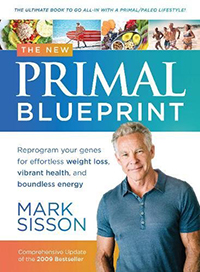
Welcome Mark, it’s such an honor to have you on the show.
It’s my pleasure to be here, Stephan. Thanks for having me.
Let’s start with the idea of being an endurance athlete. I had heard you speak at a couple of different events here recently and you talk about the impact that endurance athletics has on the body, and it’s not good in the traditional form. Let’s talk a bit about that, what does endurance do to your heart, to your joints and all that.
Sure. Let’s be clear that some amount of endurance training is great, is ideal. There is a certain amount of endurance performance that humans evolved to require over the years and that amount is somewhat objectively arrived at by looking at different biological parameters. Clearly, we need to be active, we need to exercise, we need to get out and do some form of activity, endurance activity, strength training, a little bit of sprint work. All of those things up to a point will enhance our health, enhance our fitness, enhance our ability to burn fat, to have more energy. All of that is good, but I should say, Alas! In life, we encounter situations where too much of a good things can start to be bad and that seems to be the case with endurance training. I had a career as a marathoner and a triathlete, I spent a lot of time chasing performance, chasing it at the highest level. In my own particular case, I got injured, I got sick, I started to fall apart, I started to see some of the downsides to training too hard, too much, too long, too fast. I started to see it in my contemporaries who were beginning to suffer from joint deterioration, from heart issues, from literally over-stressing the heart day-in and day-out for not just years, but decades. What we started to see is certainly and anecdotally in the late 80s and early 90s as decades of training started to come ahead for a lot of people. What we started to get proof of in these longitudinal studies of lifetime endurance athletes was the possibility that going too hard, that training the heart at too high a rate could have negative consequences, or consequences that were shall we say antithetical to longevity or antithetical to optimal health.
In my own particular case, running my heart to max several times a week for decades resulted in sickening of the left ventricle, it’s pretty common among endurance athletes where the left ventricle gets stretched and thickened and then there’s a little bit of scar tissue forms there and then the way the heart muscle innervates and beats can often get compromised. In my contemporaries, I started to see heart attacks where people died or where they recovered and had multiple heart attacks or where they have a pacemaker installed or defibrillator installed or they had an ablation to cure atrial fibrillation or premature ventricular contractions. As these incidents started to mount up, a number of us in the endurance community started to kind of raise our eyebrows and go, “What the heck is going on here?” We assumed all along that all of this running, and cycling, and swimming, and triathlon training was good for us. And that the more you did, concededly the better health you achieved and it turns out it was not that case, that there’s a point at which you can overstress the heart and cause damage. There’s a point that which you can cause repetitive motion injury by running too much or cycling in one position too much.
What I started to do was just kind of look at what does it take to be an endurance athlete and to not fall apart? Is there a way in which I can be good at competing in a 10k or a marathon or triathlon but not fall apart, not incur the joint damage, not incur the stress and burnout that so many people who undertake this sort of activity incur. Even in the large numbers, you look at the starting line of any major marathon where there might be 25 or 30 thousand people towing the line. A lot of them don’t look that healthy, they certainly don’t look that skinny, they certainly don’t look like the 40 or 50 miles a week that they’re running is burning off or melting off the fat. My objective in the latest book that I’ve written which is Primal Endurance, my objective was to find the ways in which we could achieve this optimal endurance with the least amount of pain and suffering and discipline and burnout possible. And with the greatest amount of enjoyment, satisfaction, and pleasure. Sorry about that long-winded answer there Stephan, but I felt compelled to give a story.
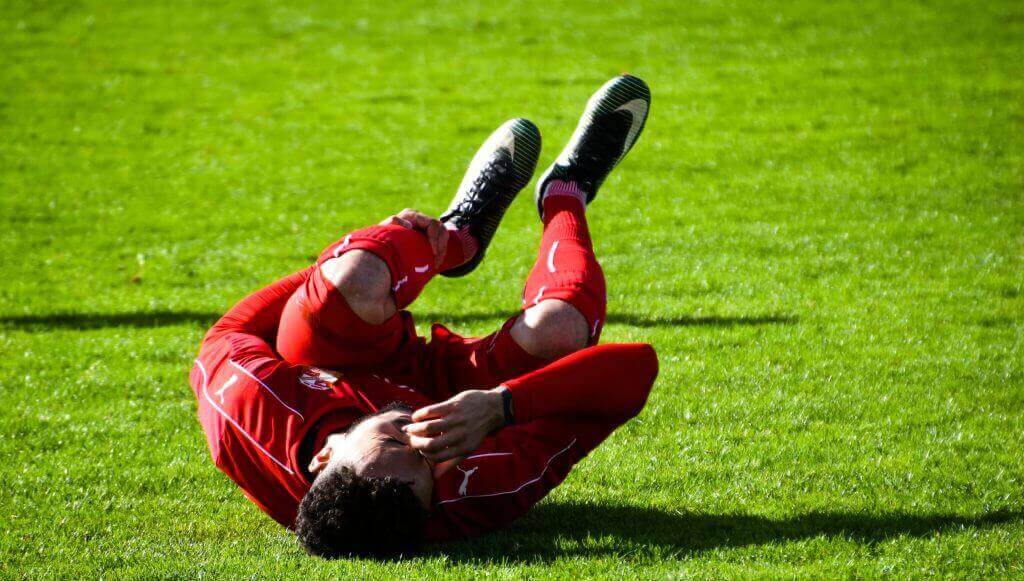
No, it’s great, it’s important, people need to understand that there’s a point where it’s actually deleterious to your health to overstress the body and that’s a great case study, you and your contemporaries and the impact it had. What’s the solution? It’s obviously to read your book but also…
It’s several fold, much of this is rooted in assumption that the more we can sweat and burn off calories that somehow we’ll be healthier, we’ll be leaner, we’ll be fitter and a lot of it goes back to this no pain no gain attitude, this feeling that the more you train your heart to endure pain, somehow, the better that is for you in terms of your overall health. What we’ve realized is that there’s a kinder, gentler way to train for endurance that may, in fact, even impart greater endurance capacity with less output, with less work involved, with less struggling and suffering. One of the first things that we look at is what is the optimal heart rate for doing most of your endurance training, most of your long-distance stuff and it turns out it’s a number that it is 180 minus your age. I’m 63, 180 minus 63 is 117. In the old days, I would’ve thought that is a ridiculously low heart rate because I could go all day at a much higher heart rate. But that’s the heart rate at which my body puts the most amount of oxygen through without having to burn a lot of carbohydrate, without having to burn a lot of stored glycogen, without having to burn a lot of glucose, and sort of the upshot of that is I’m burning more fat, I’m learning to burn fat and teaching my body how to derive energy from my stored body fat because of the level of activity that I chose to train at. That’s point number one.
A corollary that would go along with that is the better you become at burning fat, the less dependent you are on glucose, and sugar, and carbohydrate. I’ll use those terms here interchangeably, carbohydrate coverts in the digestive track into sugars which are basically glucose and fructose and a few others, but glucose is the main one. Glucose, when we talk about carbohydrate, we’re talking about a fuel that eventually becomes glucose to give storage glycogen, it gets referred to as sugar or blood sugar, and all of those terms are interchangeable. The medical community is starting to realize that while a lot us have a lot of sugar in our lives taking the form of sweetened beverages, juices, fruits for sure, desserts, candies, cookies, cakes and in refined carbohydrates, things like pasta, cereal, breads, those are all sources of glucose. The latest research would suggest that from a very macro 30,000ft view, the less glucose you burn in a lifetime, probably the healthier you’ll be, probably the longer you live, the less glucose you burn in a lifetime. And if you don’t burn glucose, then you have to burn fat. Once again, it comes down to training your body to derive as much energy as possible from your stored body fat or from the fat that you might eat in meals that contain healthy fats, avocados, eggs, and grass-fed beef, and coconut oil, things like that.
Now we’ve hit upon the two key components. One is going to slow down your endurance workouts down a little bit, the other is to eliminate the simple and refined sugars from your diet. The body kind of gets a signal that actually up-regulates certain genes that causes the construction of certain enzyme systems. The signal is, “Hey, we’re not going to get much more glucose, let’s get really good at burning fat.” All of that information is contained in the DNA in each of us. It’s really a question of what choices we make to turn on the genes that create the enzyme systems that will take fat out of storage and burn it for fuel. Once you tap into this amazing, immense personal power that you have, your life can change. You’ll have more energy throughout the day, you don’t feel compelled to have to eat all the time, hunger no longer runs your life. You can get by on fewer calories if you choose, your energy levels are stable throughout the day, you don’t get sick that often, you don’t lose muscle mass, in fact, you’re more inclined to put on a little bit of muscle and strength if you choose to engage in some weight training. It’s a very functional and compelling diet, not just for athletes but for people in business who want to kind of maintain that edge in business.
Are you a fan of caloric restriction?
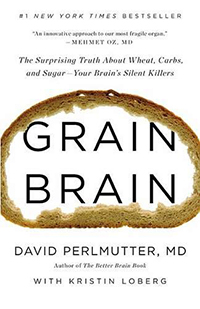
The studies on caloric restriction with lesser animals, hey here I go being judgmental about animals. The studies are pretty compelling that some of the worm-like creatures and some of the worms that they withhold, calories live 50% longer than those that are fed a sort of normal diet. Some of these farm animals, mice, had been shown to live longer on calorie restrictions. However, my reading of the research would suggest that it’s not so much the calorie that needed to be restricted as it’s the amount of glucose that’s being restricted and the amount of insulin that you’re secreting or in this case not secreting, in other words the less insulin you secrete, the lower you can keep your insulin levels. That probably has a similar longevity effect. The only studies of any note that’d been done on humans were calories had been restricted have not been impressive and talking about 900-1100 maybe 1200 calories a day per person for years at time where every morsel of food is measured out and recorded. That is no way to live one’s life, I’m sorry.
I actually remember watching a documentary seeing a guy preparing his food who’s on a caloric restriction diet. He would peel the apples and only eat the peels and throw out the rest of the apple. And that’s not a way to live.
No, no, no. In the interest of science and ego or whatever it is that people take something so bizarrely restrictive as that, I take my hat off to them for their willingness to do that. But the results have not been compelling. In fact, [00:14:43] Roy Walford, one of the leaders of the movement, died prematurely of neurological issues, who knows, maybe brought on by a dramatically reduced important fats in his diet. I’m speculating here but it is not born out well for those who have attempted it. Now having said that, where I was going with this earlier is that I am a believer in a lower-carb-lower-sugar diet. I am a believer that by doing so, you restrict insulin and that probably is where the longevity is manifesting itself in that insulin pathways. I will tell you that one of the key components of my program is never go hungry. What you’re doing is you’re training your body to derive as much energy as possible from fat. You have a lot of fat on you, I’m a reasonably fit guy and I probably got 9% body fat, I have 40,000 calories of fat on me that I could use to walk 400 miles if I needed to or do what I need to do. It’s not like any of us are ever without fat, so the more that we can tap into this ability to burn fat, a couple of things happen.
Number one, as I say, the appetite self regulates because, I read the stories about the calorie restriction experiments and in some of the ones that were done in the 40s and 50s which are basically inhumane, men were biting their fingertips off and their hair was falling out having neurological issues and it was terrible. I would not wish that on anybody. What I would wish on people is that you get in that zone where you have all the energy that you need and that you only eat the amount of food that is required to satisfy your hunger. Once you’re no longer hungry for the next bite, then push the plate away or stop eating or wrap it up and take it home or don’t eat it, or whatever suits you, knowing full well that when you are hungry again, there is always going to be some amount of food available to satisfy your hunger. In my Primal Blueprint and Primal Endurance Strategy, we developed the skill where you become so good at burning fat, in my case and in a lot of cases, you wake up in the morning with plenty of energy so you don’t jump out of bed ravenous. If I’m not hungry, I don’t feel compelled to eat breakfast and I don’t eat breakfast, I might have a cup of coffee and little bit of caffeine helps stimulate some of the fat burning but I might go to the gym in the middle of the morning and do a hard workout and still not eat for a couple of hours. I might have my first meal of the day at one o’clock in the afternoon, because I’m good at burning fat, I don’t have the blood sugar swings, I don’t have the energy issues, my brain functions very well, and I maintain muscle mass so I can do my strength training.
I’ve tapped into a whole new, we call this fuel partitioning, a the whole new way of deriving fuel that is almost completely opposite of what so many people in the fitness industry promoted for so long in the 70s and 80s and even the 90s which was this sort of make your carbohydrate a basis of your eating strategy, certainly complex carbohydrates, whole grains, never go more than two or three hours without eating because you might cannibalize your muscle tissue. It was a bizarre set of eating rules that was predicated on the assumption that we needed all this glucose to run the muscles and to run the brain, to carry on throughout the day, which has since been proven otherwise that we are basically at birth, we arrive into this world with all the machinery to burn fats spectacularly and we are fat-burning beasts. Our factory setting at birth is to be good at burning fat, but we mess it up because of the access to cookies and crackers and mushed peas as kids and all of the baby food and all of the mashed up fruits and all these sugar laid and high carbohydrate meals that we feed kids and then it becomes cereal and toast and donuts and bagels and sandwiches and chips for lunch and pasta for dinner and all of these foods which we can live on, don’t get me wrong, but can we thrive on them.
All these foods sort of turn off all of the fat-burning machinery that we were born with and basically becomes more adept at handling sugar. It’s a huge amount of sugar that we’ve chosen through our diets to put through our bodies. My goal is to get people off of that carbohydrate-dependent sugary pathway to become a fat-burning beast, to become dependent on healthy fats and lean protein and certainly vegetables and a little bit of fruit but not all the cookies and cakes and sweet drinks in can, candies and pies and crackers and soda. All the stuff that pervades our diet.
So you’re basically off of sugar completely?
Having said that, no, I’m not off of sugar completely, it’s a question of degree. I put a teaspoon of sugar in my coffee in the morning with some rich whole cream. I don’t turn down something that has a little bit of sugar in it. At the end of the day, when you tally up all the sugar, the actual sucrose that I might have consumed in a day, it might be 15 grams or 20 grams, not 240 grams like some people typically will consume in a day. It’s not a black or white issue, it’s a matter of the quality of the food and the quantity of the toxins that I’m willing to abide. A little bit of sugar while a lot of it’s toxic, a little of it is pleasurable, and I’m not going to be that draconian to myself or for anybody else about that.
I significantly reduced my sugar intake as of about 14 months ago. I stopped eating desserts.
And what do you notice?
I feel healthier, I feel more like I don’t crash in the afternoon since, and I don’t get sick as often, I rarely get sick.
That’s huge by the way. People who get a lot of colds and flu and things like that don’t realize that sugar is are huge immune suppressor. One or two large bowls of sugar in the form of a bag of gumdrops at the movie theater or half a gallon of ice cream in several moments of weakness can be enough to disrupt the immune system in a way that opens the door to those cold and flu germs that have always been lingering around but your immune system has always been well equipped to handle. Now once you shut the immune system down or close that door, those little viruses get a chance to get in there and take hold for a few days. It is definitely one of the things that people notice right off the bat when they cut off the sugars, they don’t get sick as often.
Yeah. It’s not just the colds and the flu viruses that you got to worry about, but we all have cancer cells in our bodies at all times. The immune system keeps those cancer cells at bay and…
The immune system is the only thing keeping those cancer cells at bay. You want to love, honor, and cherish your immune system.
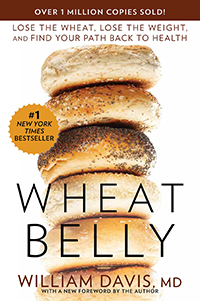
Are you a fan of books like Grain Brain and Wheat Belly?
Yeah, yeah. David Perlmutter is a friend and William Davis is a friend, I mean those guys are great, they’re in the right track. I’m certainly a big fan of those guys. I was decrying grains as antithetical to health in general long before those books ever came out. I started in 2008 talking about my own experience with eliminating all grains from my life because while I’m not celiac, I don’t have that horrendous, life-threatening intolerance to gluten, I am still pretty severely impacted by gluten. Gluten is the storage form of protein and grains. In wheat, it’s called gluten but in corn, it’s called zine, there’re numbers of other names that it has. Each of the grains has this tightly folded form of protein that, the argument is that humans have not adapted to digesting appropriately or at least many humans have not adapted. Grains have only really been part of our diet for the past 10,000 to 8,000 years and that’s not a long time in the evolutionary scale to have adapted a digestive track to handle these tightly folded grains.
Some people can get away with them but I’m not one who can, I can’t eat grains. I had severe IBS most of my life, for 45 years I had Irritable Bowel Syndrome that basically ran my life, dictated how I would drive to an airport along a route that had a gas station with a bathroom open for instance or in school and in college, I always had to figure out classes where the nearest restroom was because stuff would hit me that hard so quickly. I thought it was just because I was a type-A kind of guy and I didn’t handle stress well and I sort of lived with it, and thought that was part of who I was and it was genetically determined and was nothing I can do about it. When I was 45 or 47, I gave up grains just on an experiment for 30 days and it was, for me, miraculous. The IBS went away, never to return by the way. The arthritis I had in my fingertips that I thought was just an artifact of being 45 years old and that would prevent me from actually gripping a golf club the way I wanted to went away. The upper respiratory tract infection that I was getting five to six times a year went away.
The heartburn that I would get, not a lot, but once in awhile that’ll be pretty annoying went away. I could think of bunch more things that I assumed were just a part of living, an artifact of who I was, something that I was going to have to deal with the rest of my life, these all went away. If I was a guy who was trying my right to eat grains because I’d done it for 45 years and I’ve even done research on grains and I was stubbornly trying to cling to that, well they must be healthy because all the research says it’s good for my heart, then imagine how many tens or dozens of scores of millions of people have the same assumption and how they might be positively impacted by just giving up grains.
Is quinoa considered?
All of these grains exist on a spectrum of fairly harmless, rice and quinoa might be in there, to pretty darn bad for where wheat and barley might fall on the other line. Some people can be impacted little to non by anything on that spectrum but I find that most people when they give up grains for 30 days notice a difference. It may be a small difference, it may be a huge difference, right?
You would recommend giving up quinoa and rice as well? At least for just 30 days.
Sure. For 30 days, it’s worth giving them up. And then if at the end of the 30 days if you’ve noticed anything and you want to start to reintroduce something, then those might be the first, the harmless ones that I’d reintroduce back in.
Got it. But what if you’re a vegetarian and your diet primarily is made up of things like pasta, bagels, and quinoa.
By the way, if you’re a vegetarian and your diet is made up of mostly pasta, and bagels and bread, you’re not a vegetarian. Vegetarian has its root vegetable, vegetable-based eating strategy. I do meet a lot of people who call themselves vegetarian who just don’t eat animals but that doesn’t mean they necessarily eat well, or eat healthy for that. I don’t want to chastise an entire group of people, because my son’s a vegetarian, he’s a very conscious vegetarian, he does it well, he knows exactly what to eat, what not to eat, and he can do this extremely effectively. He’s the smartest kid I know, he’s a great athlete, it certainly served him well his entire life. It can be done, but he doesn’t go for a lot of pasta, and a lot of bread, and a lot of pizza, and stuff like that. In his case, he’s a very vegetable-centric, he’s very cognizant of the healthy fats, he’s like a world-class guacamole-maker because he likes guacamole and he likes avocado and he likes the healthy fats from avocado. He does eat coconuts, and coconut oil, he gets healthy fats, he gets his protein from legumes so he’ll have some strategic dinner that might involve some form of beans that he has prepared. There are ways to do this and still not have to depend on gluten as a source of protein.
If you’re a vegetarian and your diet is made up of mostly pasta, and bagels and bread, you’re not a vegetarian. Vegetarian has its root vegetable, vegetable-based eating strategy. Share on XMakes sense. You said that you don’t eat breakfast in the morning, you’re having a cup of coffee and you’re not going to eat until lunchtime or whatever. Sounds like intermittent fasting to me, are you eating all your meals within an eight-hour window?
Yeah, it’s a compressed eating window. It’s actually usually from [1:00]-[7:00] when I normally eat, so that’s actually six hours. If you want to call it intermittent fasting, we can use that term, but in my case, I would prefer to refer to intermittent fasting as going a whole day without eating. You decide to go from lunch one day until lunch the next day or lunch one day until dinner the next day, that’s true intermittent fasting in my book. What I do is I just call it a compressed eating window. It has a similar effect in that I’m going through a period of time where I’m relying on my stored body fat as a source of energy. This gets down to the heart of the matter here which is I live my life to enjoy it as much as possible and to the extent that I’m healthy that helps me to enjoy my life, the extent that I don’t have aches and pains, that I move well, that I can play games, that has a tremendous impact on my life. I like to enjoy food, I don’t want to go that long without eating, I sort of get the best of both worlds where I learn how to burn fat, I’m good at it, but then I get to eat, I don’t force myself to go hungry for over a day, I’ve done it, I do it once a while and sometimes I’ll skip two meals in a row just because I’m busy and think, you know what,
I’m two meals into this, I’ll just skip one more meal and not eat until noon tomorrow and get the benefit of a true intermittent fast which if you go back to those one of the opening statements we made, if it’s done appropriately, has the effect of prompting the body into a repair mode. Let me give you a little scenario here Stephan, see if this resonates. You have two cells in the body and those two cells are looking around going, “Oh my god, look at this. There are all sorts of food, there are all sorts of glucose around and we can use that glucose, we don’t have to tap into our fat storage, we don’t have to disrupt, there are all sorts of external glucose around. I know! There’s so much glucose, why don’t we divide?” Those two cells become four cells, because there is plenty of food for everybody. When those cells divide and then they might divide again sooner than they normally would have and at some point, you’ve got all these cells divided several times. When we’re looking at longevity and we’re looking at how we’re trying to extract the longest, healthiest life, having your cells divide isn’t necessarily a good choice because cells have these things called telomeres on the end of them and they sort of control how many ultimate cell divisions that line of cells will have. There are some cells that we don’t want them to divide that often.
Now, take that same two cells and withhold substrate from them for 36 hours, withhold glucose. Now there’s no glucose, there’s no food coming in at all externally. Those two cells, the last thing they’re going to do is go, “Hey, you know what? Let’s divide because there’s plenty for everybody.” Those cells are going to go, “Hey, if we better stay where we are and there may not be food for a while, so I know, here’s what we’ll do. We’ll look internally, we’ll take some of our damaged protein and damaged fats and we’ll consume those.” It’s called autophagy or tophagy. “We will consume parts of the damaged parts of ourselves in order to survive until the next source of food arrives.” This gets even better, within the cells there are repair mechanisms that look at broken parts of DNA and use that opportunity to fix the broken strands of DNA. People in the Intermittent Fasting Movement certainly look to these period of time when they are fasting for longer than 24 hours, when they’re not just skipping a meal or two, as an opportunity to repair and restore the body. That’s a really exciting area of research for me to think that the body has enough wisdom in itself to be able to take a situation when there’s not an overabundance of food which is typically the case for Americans, but where there’s been a dirt of food presented and the cells automatically go into a repair mode, to me that’s just a beautiful thing.
The body has enough wisdom in itself to be able to take a situation when there’s not an overabundance of food.
Yeah. Do you do that on a weekly basis or how often?
I don’t do that very often, I might do that a couple of times a year just because like I say, if I find myself having started down that path, and I kind of lookup from whatever I am doing and go oh, I already skipped two meals, I could easily go to bed without eating tonight and wake up tomorrow and have a cup of coffee and work out and maybe eat after that. But I don’t do any planned fasts and I’ll just tell you because I like food too much, I found that sweet spot for me. This gets back to another thing that I talk a lot about which is humans, we do what we can get away with. It’s just human nature. Most of us unless we’re in a monastery or some sort of a religious kind of setting, we’re not better than we have to be. We’re going to be just as good as we have to be and maybe a little bit less so to get what we want. It’s the skeptic in me, okay you can call it cynical if you want, so we do what we can get away with. If somebody comes up to me and says, “Mark, I hear what you’re saying about the sugar, I’m at my ideal body weight, I work out a lot, I train hard, I don’t get sick that much, I’m functioning very well at work, I’ve got a great family. Why should I take on your dietary pattern?”
My answer is you shouldn’t because if you like where you are and you like what’s going on with you, and you can get away with those things that a lot of people can’t get away with, then who am I to judge your choices? If you can get away with that, then carry on. The truth is in many cases people find out that maybe they assumed they could get away with it until their doctor says, “Look, you’re pre-diabetic, we got to put you on some meds or your blood pressure’s a little high, we got to figure out something like that, you’ve been gaining weight over a couple of years and now you have to kind of look at your joints and the pressure on them.” Some people assume that they’ve gotten away with something or maybe you’ve got some blockage, maybe you got a some calcium scan and you’ve got some blockage in your coronary arteries. You felt great and your weight was great and you cholesterol was good but you still have these issues going on that I guarantee you are a result of lifestyle of choices that you made which is not to say that you are to blame, but at some point we all have to take some responsibility for the choices we make in life.
Getting back to this idea that humans tend to do what they can get away with, some people, and I’m one of them, I can get away with eating stuff that I tell other people not to eat. Some people just can’t get away with one or two bites of a rich cake dessert. They’re in such metabolic damage, they can’t do it. I can, I could take one or two bites. But if I take 17 or 18 bites and finish off that piece of cake, I’m going to pay the price. It’s not going to be some life-threatening deal, in my case because I’ve eaten so clean for so long, there’ll be a rise in insulin, there’ll be a stress response coming from the adrenals that’ll secrete epinephrine and a little bit of cortisol, if it’s night time then I’ll probably start my body temperature rise, I’ll start sweating, I won’t be able to sleep well that night, I’ll have a little bit of uncomfortable stomach and I could get away with it, I’m still paying the price. I’m not going to wake up fat, I’m not going to wake up diabetic, but I’m still paying a price because even though I could “get away with it” from a long term not gaining weight, not bloating, in the short term, it’s costing me. I don’t even know where I was going with that Stephan, except that you asked about what sorts of things I do and how strict I am with my own diet. I’m pretty strict but I’m not draconian.
If something looks like it’s going to taste pretty good, I’m willing to take a bite of it, but just not 17 bites. That’s the biggest problem people have with dessert is you’re served a portion of dessert and you feel compelled to finish it. I tell people, look, after two or three bites of that dessert, you got the message, you know what it tastes like, it tasted pretty damn good but now you’re just being gluttonies, now you’re just seeing if you can finish the whole thing. What constitutes an appropriate serving of dessert? If I served you a 2 oz. or a 3 oz. piece of pie and you finished it, it’s great, that was good. And then I served you on a different plate an 8 oz. piece of pie and you finished that and said that was great, what’s the difference? Your eyes just sort of went to the 2 oz. one and said, “Oops, that’s the serving, I guess I’m done. I finished it.” But there’s no way, not no way, but it’s much more difficult to take 2 oz. off the 8 oz. serving and go, “I’m done.” Does that makes sense?
I think it depends on kind of how you’re wired as a person, for me, I am an abstainer. It’s kind of an all or nothing sort of thing. If I started a piece of cake, it’s really hard for me to not finish it. But for some people, they’re more of a moderate type of person, they can take a bit of it and not have a problem with saying no to the rest. I just shifted my identity to somebody who doesn’t eat desserts and that works for me. What would be the optimal BMI for somebody who’s fit and eating this sort of diet?
Your ideal body composition is where your body says I feel great here.
I really dislike this whole BMI thing. It doesn’t factor in a lot of things. I’m exceptionally fit for my age, I’m still really fit for anybody at any age. My BMI is 25 which is borderline on overweight. If you looked at me, there’s not one part of you that would say I’m overweight. The BMI serve lies when it comes to me because given my weight and my height, my muscle are dense but I show up as a BMI of 25 or 24.7 shall we say, I’m borderline. I just laugh at that, the last thing anyone in my life on any day would’ve ever said was, “Mark, you look like you’ve put on a little bit too much weight.” The BMI thing is more of an attempt at the medical community to once again categorize and compartmentalize and give quintiles and cohorts to different groups of people for the purpose of comparing a host of other data sets across a bunch of different potential outcomes. It’s not something that I rely on. I literally look at people and go, “How do you feel and how do your genes fit?” You could be a 175 lbs. woman at 5’8’’ and be extremely fit and look awesome and feel great and have all the energy. Even though you read a magazine where the cover of the woman with 127 lbs. and was ripped and had washboard abs, maybe your genetics don’t allow for that and maybe you’re at a point where your body says this is awesome. I’m not sick, I have energy, I have muscle mass, I move well, I’m fertile, I can do all the things I want to do. Why would I want to shed any more weight? I know that’s problematic for a lot of people, not just women, with men too. But the reality is a lot of times your ideal body composition is where your body says I feel great here. Not where your brain or your minds says, I want to look like that particular model or that particular magazine cover.
Right or where the social convention says that you should be. Are there metrics that will help us know that we’re on track? BMI is not a good metric, are there others?
Your body fat is still the best metric. If you can get your body fat tested on a regular basis, any trend toward a loss of body fat down to 15% or 16% for men, it could be lower if you want to be real elite about it, 19% to 22% for women. Anything about that you could argue well, I can test my body fat now and let’s say I’m 27, today I’m going to really be good about my diet and I’m going to start Mark’s exercise protocol for eight weeks and hope I can get down to 23% by the end of that. Any amount of progress you make is a good progress until you hit a point where the body says this is awesome what you’ve done, I don’t feel like I need to move from here anymore. This is where a lot of people get frustrated sometimes, it might hit what we call plateau. A lot of people who go from 220 to 160, they’ve lost 60 lbs, then they go, women in particular, “Wait a minute, I’m stuck at 160, what the hell, what’s going on here? I’m doing everything right and my body stopped, my body’s rebelling against me.” No, your body is going, “This is so awesome, you lost 60 lbs, acknowledge yourself for that. Be okay to hang out here for a couple of months and then if you decide you want to go the next level, we can figure out how to do that.” It might take some extra work, it might take a bit more attention to detail on the diet, it might take a little bit more specific workouts in the gym to drop the next 10 or 15 lbs if that’s what you want to do.
People too often get caught up in some artificial metric that was handed to them by either the BMI charts or by a magazine cover or story they read versus how they feel. If you’re a slightly overweight person who feels great and all your blood work looks awesome, that’s your body saying, “Look, what’s the problem? We’re good here. Don’t mess with it, don’t get all caught up in your head about oh I’m still overweight, I still need to do this, I still need to do that. Acknowledge what you’ve done and wake up every morning ready to enjoy the day rather than going, oh well, I could enjoy today but I’ll really enjoy it in three months when I lose 10 lbs. Until I lose 10 lbs., I won’t really be able to enjoy anything, I’m just living, I’m getting through this next 90 days so at some point in the future I could feel good. That’s again no way to live your life. This is about extracting the greatest amount of enjoyment, pleasure, fulfillment, contentment from every moment possible, it’s about enjoying the experience. Even if you are overweight, if you’re headed in the right direction, then don’t wait to feel good when you get there, start feeling good now.
Makes sense. Any particular metrics inside of your blood work that you want to pay attention to? Triglycerides and all that? What are the things that are going to be most important?
If you’re looking at your blood work and you’re working with your physician, you might want to get your triglycerides as low as possible, that will happen when you start restricting sugar and processed carbohydrates. I like to see triglycerides under 100. You want your HDL, the good cholesterol to be above 50, and in some regards the higher the better. You want your C-reactive protein to be very low, two or below. You want your A1C, which is the measure of the amount of sugar that’s been in your bloodstream for the last 90 days, it’s called HBA1C, the amount of sugar bound in the hemoglobin. You want that to be in the low fives or below, and those are some kind of standards that if you hit hose metrics then you’re in good shape, you’re probably headed in the right direction.
What about any regimen where you get super oxygenated. At the Bulletproof Conference where we just both saw each other, I was in the hyperbaric chamber for 30 minutes and got super oxygenated there, I was on the Livo 2 Bikes where I was first deprived of oxygen, down to 25% of what I’m used to or whatever. I was sprinting on the bike and then I cranked it up to 100% oxygen. Any kind of protocols like that that you particularly like?
I’m not a bio-hacker, Stephan. I’m not buying the benefits of that sort of stuff yet. I’m more of the intuitive like get out and just go for a hike, or go for a run, or go for a swim, or go to the gym and lift weights, or ride a bike. Even at the gym intuitively according to this 180 minus your age being probably the single most I’ll dial in any sort of work out, otherwise it’s fairly intuitive. A lot of these hyper oxygenations, I’m just not feeling it yet, and maybe it’s great, and maybe it’ll be there someday but for the average citizen who’s trying to achieve greater health and greater proactivity, there are so many more low-tech things that you can do. Right?

Just like dropping sugar from your diet.
Yeah. To that point, dropping sugar from your diet will have 10 times the effect of going to regular sessions in a chiral chamber, or doing hyperbaric chamber, or any of these other sort of short term modalities that don’t really take into account the adaptive nature of the human body, the fact that what we’re trying to do is we’re trying to reprogram our gene, we’re trying to regulate certain enzyme systems by manipulating hormones and manipulating genes to get there over a long period of time, not just on an acute experience that lasted 10 minutes to an hour.
What would you say would be one of the best strategies for building muscle mass?
The best strategy for building muscle mass is to go to the gym and lift weights twice a week. Depending on where you’re starting, could be as simple as push-ups, pull-ups, dips, squats, lunges, bodyweight stuff to get started. Certainly, the machinery is great, some of the machines they have at some of the gyms are very cool on how they can take certain muscle groups and put them through a range of motion or planes of motion and load them up. I would say no more than twice a week because if you do it right, those two workouts a week are going to cause the micro-tears that were seeking to elicit in the workout which then needs time to repair, those are the signals that the genes get to go, “Okay, we got to build more protein, we got to shore up this structural system here, we have to increase the bone density, increase the muscle mass, increase the power and strength, increase the number of mitochondria,” all of these things happen as a result of blood-borne signals that are generated from the workouts that you do. But you can’t get there unless you also give the rest phase, hence the twice a week and not more, and the nutrition that provides the healthy fats, the clean lean proteins, and some operative amount of carbohydrate.
My daughter who’s working out six times a week and kind of obsessed about it, and she’s also not eating that well, she eats a lot of junk, that’s really not a good approach.
No, it’s not. That gets back to a comment I made, we do what we can get away with. A lot of people who eat, I see a lot of people at the gym and go, “Dude, you’re here everyday? You’re 450 calories on the bike, 375 on the treadmill, what’s going on?” The answer is sometimes, “Well, I like to eat, I want to burn off my calories because I like to eat.” Dude, I like to eat too, there’s a better way of doing this rather than sweating off all the calories just to go back and overdo the calories when you get home. There’s this bizarre cycle of sweating too much, training too hard on the treadmill and burning all the sugar, all the stored glycogen, this just gets back to the original comment that we made, and being a sugar burner and not being good at burning fats, you burn through all the glycogen and then because you’re not good at burning fat, the brain goes, “Hey, we don’t have any energy, where’s our glucose going to come from?”
Better to learn how to burn fat and in so doing to mitigate your appetite so that you don’t feel compelled to overeat.
You go home and you tend to overeat, unless you got an eating disorder in which case now you did all the work and then you’re willing your body not to eat and that’s a very dangerous situation. Better to learn how to burn fat and in so doing to mitigate your appetite so that you don’t feel compelled to overeat. When people say again, “I eat 30% fewer calories now than I did seven years ago and yet I have the same energy, the same muscle mass.” It blows my mind I can get by on fewer calories and people will say, “Woah jeez, Mark, does that mean your metabolism has slowed down?” And the answer is, “Yes, it does, my metabolism has slowed down, and because I’m not hungry, it doesn’t matter to me, and because my metabolism has slowed down, I’m going to live longer than you, sucker.” You know, a lot of people die early because they revved their metabolism too high for too long. That’s a thyroid discussion we could have for an entire show.
I’m Pescatarian, some vegetarian who finally reintroduced fish into my diet a couple of years ago.
I’m an [00:55:08].
Practically the same thing.
Close.
I don’t really quite understand what it means to paleo diet because I’m not going to eat a lot of lean proteins.
Yeah, but fish is lean protein.
Well, except for the fish. I don’t even eat shellfish. People who are into the grass-fed beef and all that, including my fiancée, I don’t really get the paleo diet thing. Could you explain the differences or similarities of being primal versus being paleo?
They kind of come together in the past decade. They started out fairly diversion, Paleo wouldn’t allow any sort of dairy, wouldn’t allow a lot of saturated fat, didn’t allow alcohol or any legumes, any grains of any kind. Primal over the years has been more accepting of some of these French foods like dairy. If it’s whole dairy, raw dairy, whole cream, butter, those are all accepted as legitimate primal food, and now they’re accepted as paleo food for the most part. Grass-fed meat, that’s sort of the big sticking point of the paleo community, so many people who are not paleo think that it’s a meat-centered diet but I know a lot of Pescatarians who are paleo all the way. It’s really more about what you don’t eat when you’re paleo or primal. It’s about getting rid of the sugars, getting rid of the refined carbohydrates, getting rid of the industrial seed oils, the corn oils, the soybean oil, the canola oil, all that stuff. That’s really what’s causing the health issues in so many people. It’s not so much where you get your protein, it’s what you’re electing not to eat that’s causing all of the benefits. A lot of these diets put a certain filter on, they look a lot more similar in what you’ve eliminated, and they’re not so desperate as you might think other than the choices of protein sources.
Right, got it. Earlier in this episode, you mentioned telomeres and as you aged the length is shortened on the telomeres. If you want longevity, you want to take care of those telomeres, what if somebody’s already aged quite a lot and their telomeres are quite short, is there any strategy to extending the length of those telomeres?
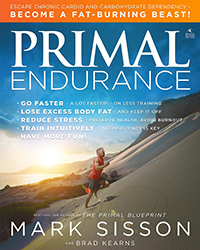
You can slow that whole process down, otherwise, if you speed the process up your whole life. And I think we’ve all met people who are in their 40’s who look like they’re 80. They lived fast and hard. Whether it was smoking cigarettes, drinking a lot of alcohols, spending way too much time out in the sun, I’m a big fan of the sunlight but not too much, lighting the candle at both ends, burning a candle at both ends by staying out late at night and not getting much sleep. You see a tremendous amount of cross-linking, you see wrinkles in the skin, you see tremendous collagen loss or damage in the skin. You’re not going to undo that but you’re going to, at any point in your life you can go, okay from this day forward, I’m going to stay on the decline. I’m going to get on a program that extends my life and improves my health, and I may not get it all back to where I would’ve been if I’d been pristine from the age of five. I don’t think anybody expects that. I don’t think people expect the reversal of all of that damage but you can reverse some of the damage but you can also recognize that some of the damage is done and now it’s just time to recognize that you got to do something about it before it’s too late.
That’s a great lead into my final question here which is how do people start implementing your plans? For the nutrition and the dieting, for the exercising, should they just pick up your new book, Primal Endurance or your latest book, or should they go through an online training?
Yeah. We have all these. Basically, the website is marksdailyapple.com and all the information that I’ve ever given out, I give out for free. There are 4000 articles there, there’s probably eight million words of copy, it’s a lot to wade through. I have books, I have the Primal Blueprint which is the best seller that described this lifestyle initially almost 10 years ago. The easiest read for those who like a quick hit is the Primal Blueprint 21-Day Total Body Transformation. All my books are available on Amazon, so you click right now you’ll have it tomorrow morning. If you’re an endurance athlete, you want to really delve into this concept of how do I become a faster, more effective, more powerful endurance athlete without having to work so hard, then that’s the new book, Primal Endurance.
Got it. Can somebody who can afford it hire you as their coach or is there a way they could work directly with you somehow?
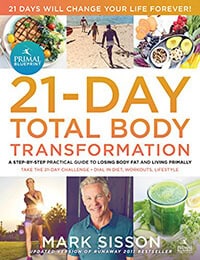
No, I don’t do that anymore. But one of the things that we do, we have a coaching program. We have Primal Health Coach, and it’s a very in-depth 150,000 words of text online, it’s 13 modules all about the science of what I’ve preached for the last 10 years. I basically train people to do what I do. We have thousands of people who have gone through that course, you could either go through the course and learn all the material or you could hire somebody who’s gone through the course to work with one on one, and we have some of those people identified on the website at primalhealthcoach.com
Perfect. Thank you, Mark. This was amazing and you really inspired me to clean up my diet even further. I still eat a lot of junk, not in the form of desserts and simple sugars but it’s carbohydrates, just too much of the grains and so that’s the next hurdle for me to jump over.
Cool, keep me posted.
I will.
You bet.
Alright. Check out his books and his website. Listen to his podcasts, it’s awesome. Thank you, everyone, we’ll catch you on the next episode of Get Yourself Optimized. This is Stephan Spencer signing off.
* Check out this awesome testimonial from my friend Greg Garrett, on a simple yet profound transformation he had simply from listening to this episode of Get Yourself Optimized:
Important Links
- Mark Sisson
- Twitter – Mark Sisson
- Facebook – Mark’s Daily Apple
- Instagram – Mark’s Daily Apple
- Youtube – Mark’s Daily Apple
- The Primal Blueprint
- The Primal Blueprint 21-Day
- Primal Endurance
- Grain Brain
- Wheat Belly

